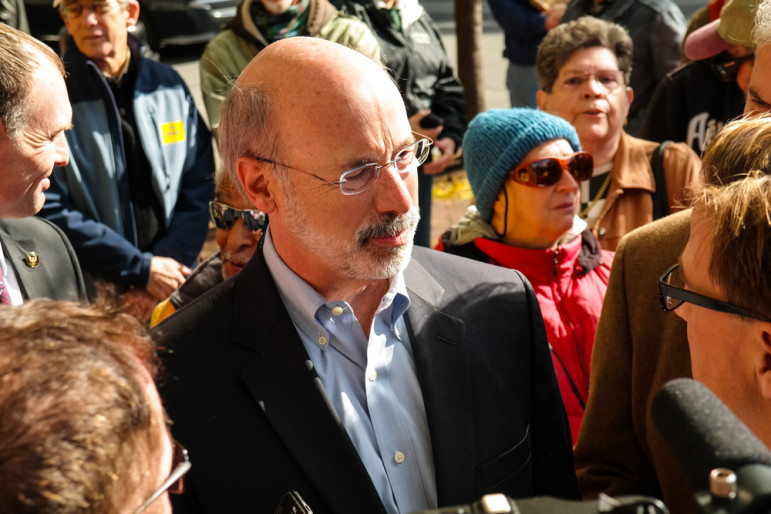
December 21, 2015; Morning Call (Allentown, PA)
NPQ reported this past summer on the consequences and upshot of the Supreme Court decision that upheld the constitutionality of the sedative midazolam in the execution drug cocktail despite alarming cases in Oklahoma and Arizona where inmates took hours to die. During that time, as the Court waited to rule on the case, several states, including Pennsylvania under Governor Tom Wolf, instituted a temporary moratorium on the death penalty. After the ruling, some states, Texas and Missouri among them, resumed executions in the fall, but others were more hesitant. On Monday, December 21st, although Pennsylvania’s state Supreme Court did not rule on the moratorium, it did uphold Wolf’s authority to grant temporary reprieves and postpone executions.
Back in February, Wolf granted a reprieve for death row inmate Terry Williams, who was convicted in 1984 of beating a man to death with a tire iron. Wolf challenged that as the governor, he has the constitutional authority to grant reprieves to any death row inmates in the future until a task force thoroughly reviewed the state’s death penalty practices and renders a report. On Monday, the five justices unanimously agreed to uphold the governor’s authority to grant reprieves and postpone executions until this report is released.
“We find no limitation on the executive reprieve power relating to the duration of the reprieve, so long as it is temporary in nature and operates only for an interval of time,” wrote Justice Max Baer. “Additionally, we find no support for the proposition that the governor must provide a particular explanation for his reprieve for it to be constitutionally sound.”
Sign up for our free newsletters
Subscribe to NPQ's newsletters to have our top stories delivered directly to your inbox.
By signing up, you agree to our privacy policy and terms of use, and to receive messages from NPQ and our partners.
The ruling was in response to the challenge from Philadelphia Assistant District Attorney Seth Williams to the governor’s constitutional authority to indefinitely postpone executions. The ruling indicates that the governor does not need to set a date when granting reprieves, staying within the limits of his authority.
Wolf responded positively to the decision, as have other advocate groups with a vested interest against the death penalty. “My decision to issue temporary reprieves came after significant consideration and reflection, and was in no way an expression of sympathy for the guilty on death row,” said Wolf in a statement. “My only sympathy lies with the family members of the victims of these horrible crimes.”
The Pennsylvania Association for Criminal Defense Attorneys also released a statement supporting the Supreme Court’s decision. “The Pennsylvania Association of Criminal Defense Lawyers applauds yesterday’s decision by the Pennsylvania Supreme Court in Commonwealth v. Williams which upheld Governor Wolf’s temporary reprieve to a death row inmate as a ‘valid exercise of constitutional authority.’”
However, the ruling did not signal a decision on Wolf’s overall moratorium on the death penalty. While Pennsylvania has had the death penalty for the last 37 years, only three inmates have been executed, each of whom waived their right to appeal. There are currently 181 inmates on death row. So far, Wolf has granted reprieves to five inmates.—Shafaq Hasan













